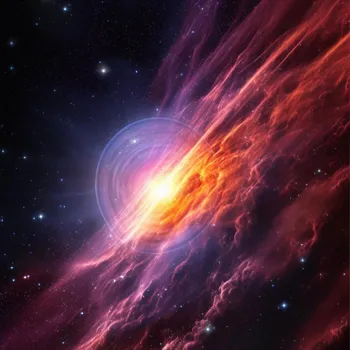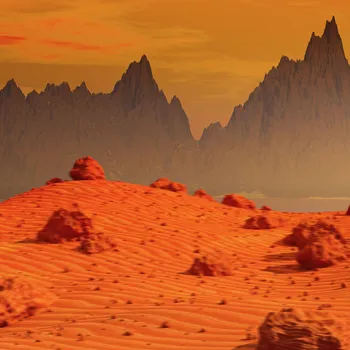Unraveling the Great Filter: Key to Finding Alien Life and Ensuring Humanity's Future. Dive into the cosmic mystery!
For decades, scientists and dreamers alike have gazed up at the stars and wondered: Are
we alone? The vastness of the universe, with its billions of galaxies and potentially trillions of planets, suggests that life should exist elsewhere.

Yet, despite our technological advancements and dedicated search efforts, we haven't found any conclusive evidence of extraterrestrial life. This perplexing silence is known as the Fermi Paradox: If the universe is so conducive to life, where is everyone?
One compelling, albeit unsettling, explanation for this paradox is the "Great Filter" theory.
It proposes that somewhere along the evolutionary path from simple life to interstellar civilization, there exists a significant barrier that prevents most, if not all, life forms from reaching a certain stage of development.
Understanding this concept is crucial for evaluating our chances of finding alien life and, more importantly, for ensuring our own long-term survival.
Hypothetical Great Filter poses challenges to life's evolution
The Great Filter, in essence, is a hypothetical bottleneck in the development of life. It suggests that there's at least one step that is incredibly difficult, if not impossible, for life to overcome.

This filter acts as a kind of evolutionary sieve, preventing most potential civilizations from progressing beyond a certain point. The implications of the Great Filter are profound, depending on where it lies in the timeline of life's development.
It could be in the very early stages, such as the formation of self-replicating molecules or the emergence of single-celled life. Or, it could be much later, perhaps related to the development of complex life, intelligence, or even technological civilization capable of interstellar travel.
The location of the Great Filter drastically alters our perspective on the likelihood of finding other intelligent species in the cosmos.
life's rare, intelligent species rarer; cherish and preserve it
If the Great Filter is behind us, meaning it occurred in the early stages of life's development, then we are among the lucky few who have overcome it. This would suggest that while life may be rare, the emergence of intelligent, technological species is even rarer.

This scenario is somewhat optimistic, as it implies that we have already cleared the biggest hurdle. It suggests that we might be able to find simple forms of life elsewhere in the universe, but the chances of finding other civilizations are slim.
This could mean that the universe is teeming with microbial organisms, but only a handful of planets, including Earth, have managed to produce complex, intelligent life.
In this case, our focus should be on preserving and cherishing the precious life we have, as it is a rare and valuable phenomenon.
The Great Filter could be a future threat to civilizations' development
However, the more concerning possibility is that the Great Filter lies ahead of us. This would mean that there is a significant obstacle that we haven't yet encountered, one that has extinguished countless other potential civilizations before they could reach our current level of development.
This obstacle could be something like a self-inflicted environmental catastrophe, a devastating global pandemic, or the development of a technology that leads to our own destruction.
If the Great Filter is in our future, then we are in a perilous situation, unknowingly approaching a major existential threat. The implications are that many civilizations get to our level of development but are then wiped out by not doing something right.
Search for extraterrestrial life crucial for future survival
The search for extraterrestrial life, therefore, becomes not just a quest for companionship but also a vital investigation into our own future. By studying the universe and other planets, we can potentially identify the factors that could lead to our demise.

For instance, understanding the climate history of Venus, which suffered a runaway greenhouse effect, can provide valuable insights into the potential dangers of climate change here on Earth.
Similarly, studying the geology and atmosphere of Mars can help us understand how planets can lose their habitability over time. Furthermore, if we were to discover evidence of past civilizations that have gone extinct, we could potentially learn from their mistakes and avoid a similar fate.
The Great Filter underscores life's fragility and the need for responsible stewardship
Ultimately, the Great Filter serves as a stark reminder of the fragility of life and the importance of responsible stewardship. Whether it lies behind us or ahead, it underscores the need for caution, foresight, and a commitment to solving the major challenges facing humanity.

By focusing on existential risks, promoting sustainable development, and fostering international cooperation, we can increase our chances of not only surviving but also thriving as a species.
The search for extraterrestrial life, therefore, is not just about finding others; it's about learning what it takes to endure and ensure our own place in the cosmos. It is only then we can beat the odds.
AI Generated Content. Glance/InMobi shall have no liability for the content












